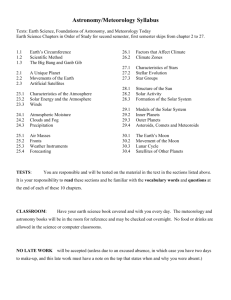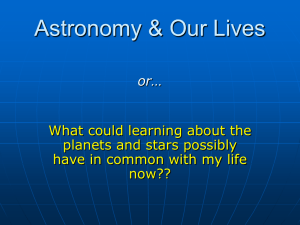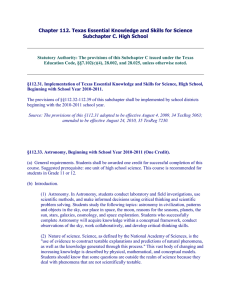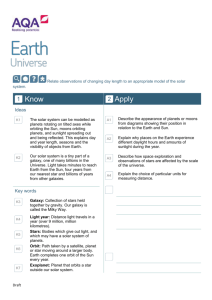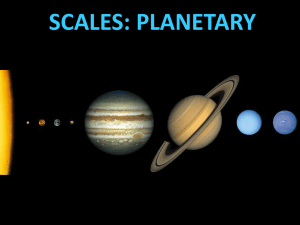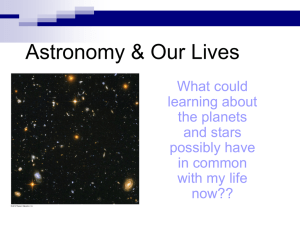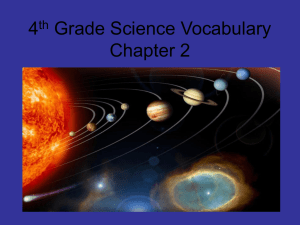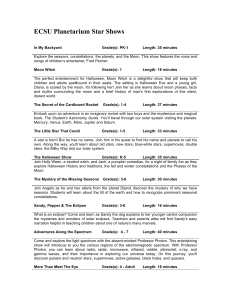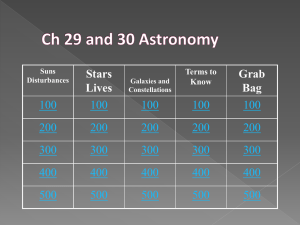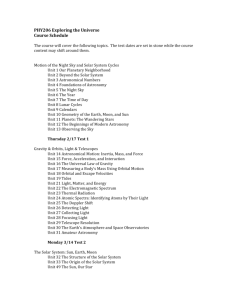Astronomy Final Exam Review (WP)
advertisement
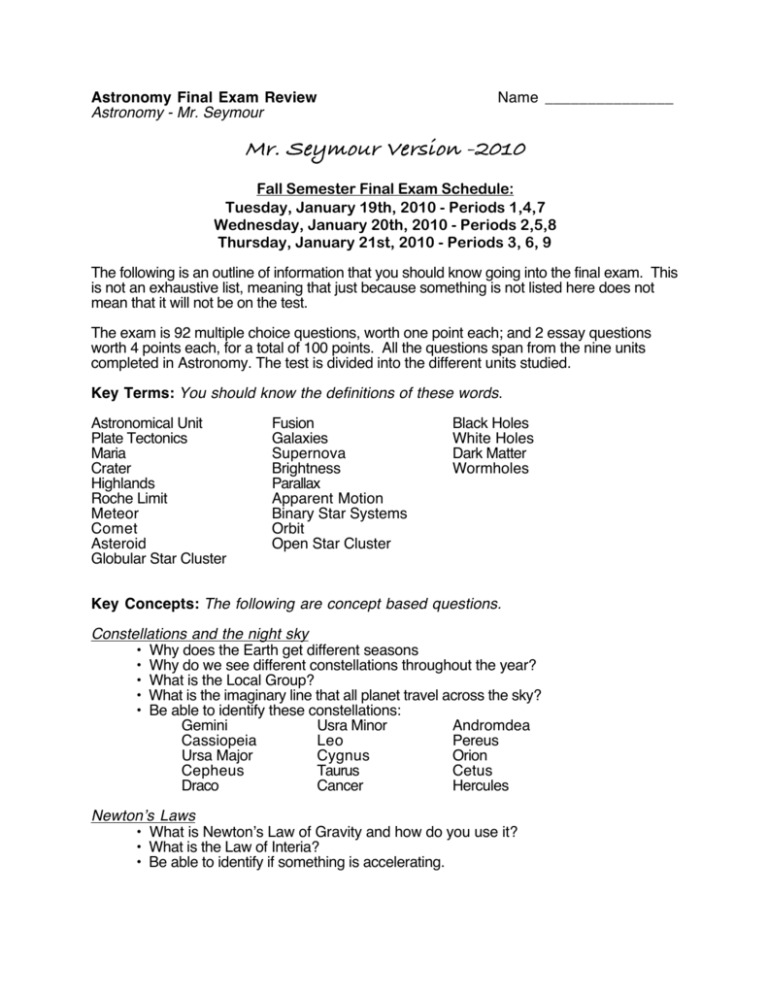
Astronomy Final Exam Review Astronomy - Mr. Seymour Name _______________ Mr. Seymour Version -2010 Fall Semester Final Exam Schedule: Tuesday, January 19th, 2010 - Periods 1,4,7 Wednesday, January 20th, 2010 - Periods 2,5,8 Thursday, January 21st, 2010 - Periods 3, 6, 9 The following is an outline of information that you should know going into the final exam. This is not an exhaustive list, meaning that just because something is not listed here does not mean that it will not be on the test. The exam is 92 multiple choice questions, worth one point each; and 2 essay questions worth 4 points each, for a total of 100 points. All the questions span from the nine units completed in Astronomy. The test is divided into the different units studied. Key Terms: You should know the definitions of these words. Astronomical Unit Plate Tectonics Maria Crater Highlands Roche Limit Meteor Comet Asteroid Globular Star Cluster Fusion Galaxies Supernova Brightness Parallax Apparent Motion Binary Star Systems Orbit Open Star Cluster Black Holes White Holes Dark Matter Wormholes Key Concepts: The following are concept based questions. Constellations and the night sky • Why does the Earth get different seasons • Why do we see different constellations throughout the year? • What is the Local Group? • What is the imaginary line that all planet travel across the sky? • Be able to identify these constellations: Gemini Usra Minor Andromdea Cassiopeia Leo Pereus Ursa Major Cygnus Orion Cepheus Taurus Cetus Draco Cancer Hercules Newtonʼs Laws • What is Newtonʼs Law of Gravity and how do you use it? • What is the Law of Interia? • Be able to identify if something is accelerating. The Moon • What is the rotational period of the Moon and why do we seen it at a different time each night? • Do we always see the same side of the moon? Why? • What effect does the Moonʼs gravity have on the Earth? • How did the Moon form? • Who were the members of the Apollo 11 mission and what year did they go to the moon? • How old are the oldest rocks on the moon? • Why is there no atmosphere on the moon? • How are craters formed? • How are solar and lunar eclipses created? • Know the different phases of the moon and be able to identify them. The History of Astronomy • Know the basics of the discoveries and inventions of the below astronomers Galileo Kepler Brahe Copernicus • Know the major advancements of the four different periods of astronomy • Know who and when the telescope was invented • Be able to describe Keplerʼs laws. The Solar System • Know the major characteristics of the nine planets. • How did the planets form? • How can you tell planets from stars with the unaided eye? • What are the rings of Saturn composed of? • Why do meteors glow? • What is a major effect of asteroid impacts on Earth? • Know where the majority of the mass resides in the Solar System • Know why the inner planets are rocky and the outer planets are gaseous • Know what the Solar Nebula Hypothesis is. • What are the new characteristics of a planet? The Sun and Stars • How do stars generate power? • How old is the Sun? • Be able to read and use a H-R diagram. • Know the evolutionary cycle of stars, what marks the beginning and ending of each phase. • Where are new stars thought to be “born” at? • Stars color indicate what property? • Know what luminousity is. • How do astronomers measure distance to stars? • If the sun went supernova, how far out would the blast be? Mathematics of Astronomy • Be able to set up and complete the following mathematical problems, formulas will be supplied for you. • Newtonʼs Law of Gravity • Keplerʼs Third Law • Par Secs Law • Weinʼs Law • Stefan-Boltzman Law NASA Missions and Robotics • What does SETI and NASA stand for? • What are the names of the robots that were sent to Mars in 2004? • Why did George Bush order NASA to go back to the moon? Cosmology • Know the different types of deep sky objects. Nebula Spiral Galaxies Elliptical Galaxies Globular Star Clusters Open Star Clusters Supernova Remnant • Know what the Messier, Herschel and NGC catalogs consist of • Know the basics of the “Bigs” • Big Bang • Big Rip • Big Crunch • Know what dark matter helps to explain • Know the basics of wormholes Essay Questions - Each essay question is worth 4 points, and must be written in complete sentences and a minimum of two paragraphs each. You may pick 2 out of the 3 essay questions. Topics - 1. Creation of the Universe, Galaxies, and Solar Systems 2. Constellations 3. Galileoʼs impact on Astronomy and Science
